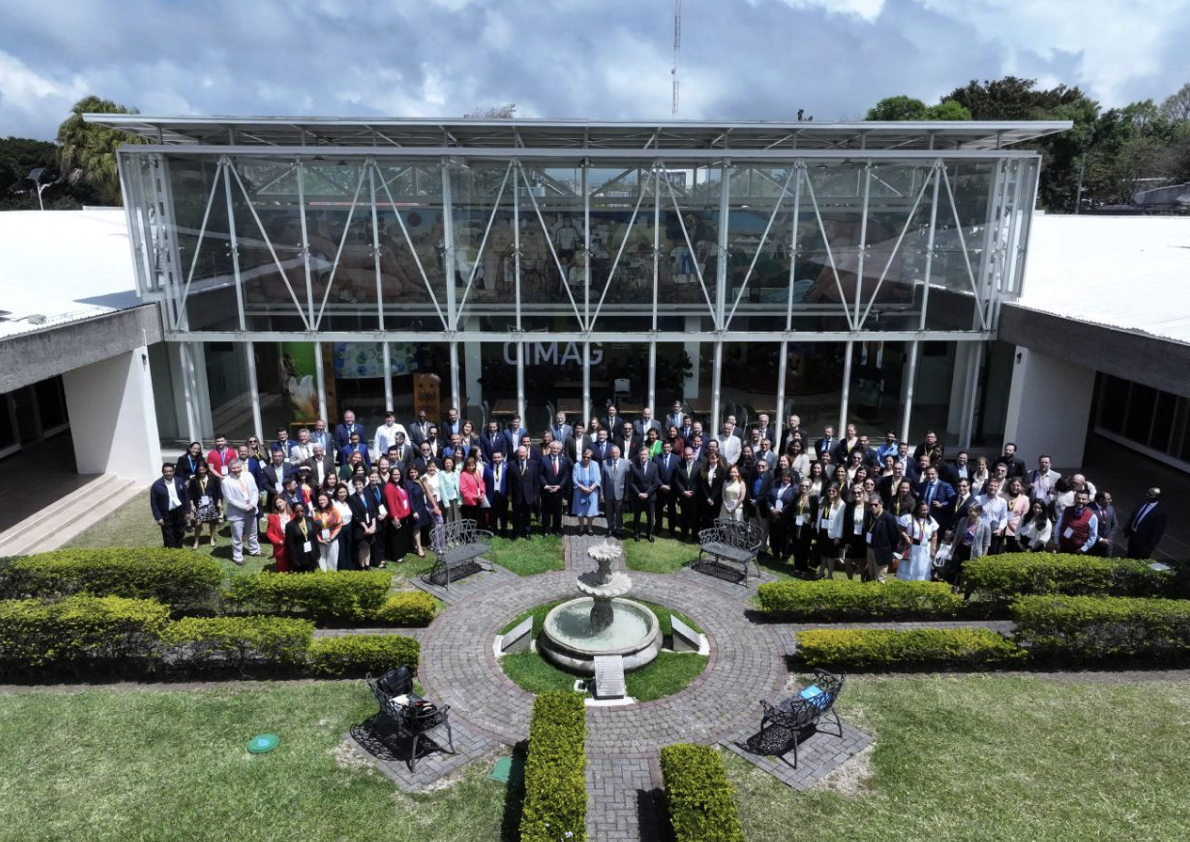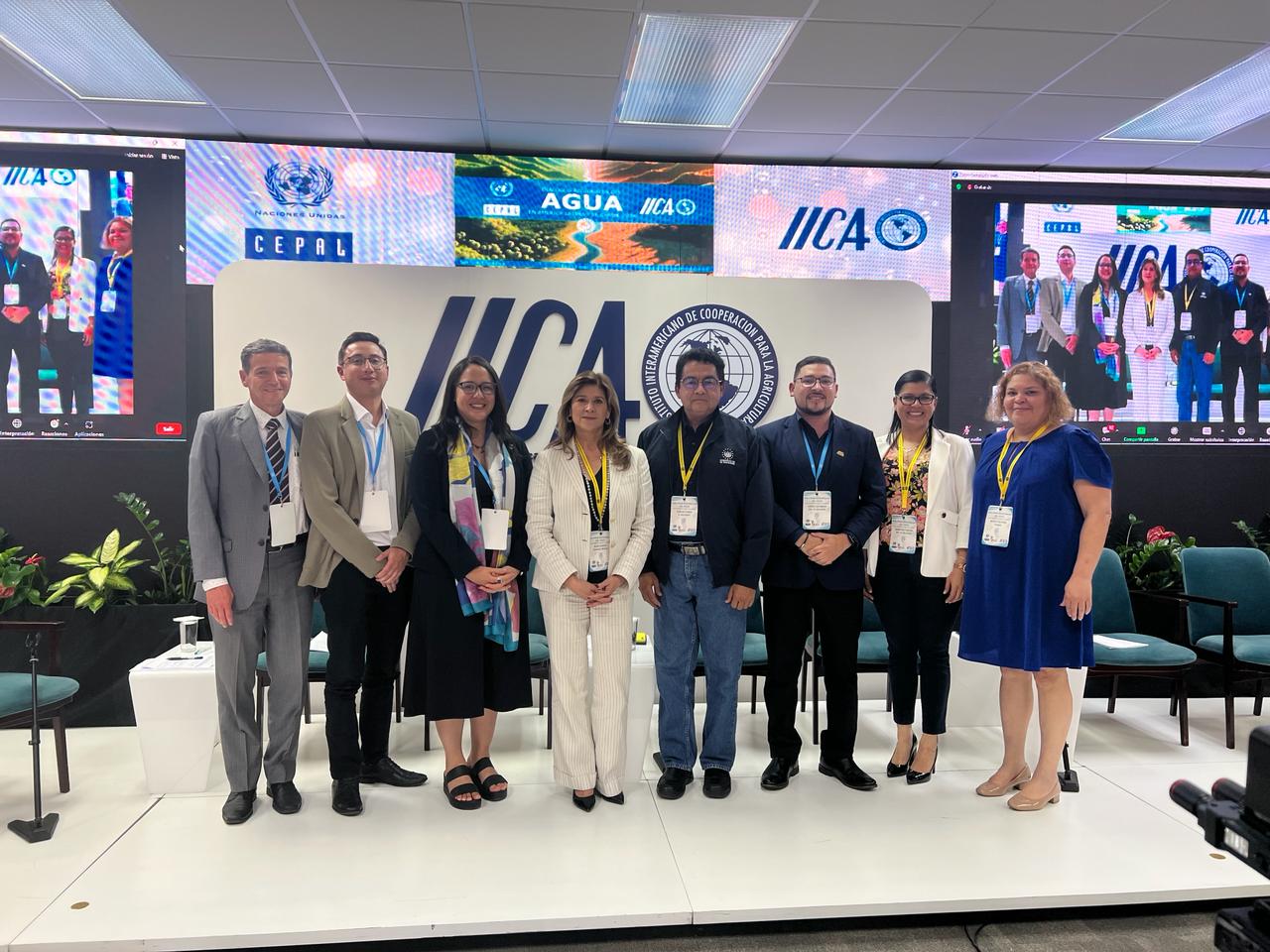Session 2 "Water and Productive Development" - Regional Water Dialogues for Latin America and the Caribbean 2024
Work area(s)
Topic(s)
Session 2 "Water and Productive Development" of the 2024 Regional Water Dialogues delved into the interplay between water management, energy, and sustainable development. It stressed the urgency of adapting energy matrices to renewable sources due to climatic variability. The session highlighted the need for significant investments and intersectoral cooperation to advance towards more efficient and sustainable water and energy management, pointing out the crucial role of the private sector in this process.
Session 2 "Water and Productive Development" aimed to emphasize the centrality of water management in productive and commercial processes. It addressed new opportunities for the incorporation of the private sector as well as the adoption of innovative practices and new technologies. In this space, experts from various areas explored the relationship between efficient water management, sustainable energy use, and the drive towards sustainable productive development.
- Mr. Ronny Rodríguez, Deputy Minister of Energy of Costa Rica, shared insights into the challenges faced by Costa Rica, a country with an energy matrix strongly inclined towards hydroelectric power. Climatic phenomena like El Niño and La Niña, increasingly unpredictable, highlight the need for energy adaptation and diversification to maintain and improve the country's energy system efficiency, for example, through the use of solar and geothermal energy.
- Ms. Rayén Quiroga, from the Economic Commission for Latin America and the Caribbean (ECLAC), emphasized the transition towards more sustainable water and energy systems, highlighting that collaboration between the public sector, the private sector, and communities is fundamental to achieving these goals. She pointed out the potential of Latin America and the Caribbean in the development of renewable energies as steps towards this transition.
- Mr. Ángel Ureña, from the Panama Canal Authority, detailed how adaptive water management is fundamental in critical operations such as the Panama Canal, especially in the face of reduced rainfall. The implementation of new water storage strategies and collaborative management with local communities are examples of necessary adaptations. He also mentioned their work on an environmental economic incentives program, agroforestry, and silvopastoral systems.
- Mr. Sergio De Román Musulén, from the Ministry of Agriculture, Fisheries and Food (MAPA) of Spain, presented the experience of Spanish investments in the agricultural sector, which have water and energy efficiency as a cross-cutting component. In this sense, he highlighted three types of projects they are working on: water storage ponds by irrigation communities, digitalization projects, and non-conventional waters (desalinated or reused wastewater).
- Ms. Ana Carolina Argolo Nascimento de Castro, from the National Water and Basic Sanitation Agency (ANA) of Brazil, emphasized the transformative role of the private sector in universalizing access to water and sanitation. She mentioned that to increase the participation of this sector, Brazil is working on harmonizing legal frameworks to reduce regulatory risks. Similarly, ANA's role in creating standards to reduce heterogeneity, attract the private sector, provide legal security, and ensure service quality was highlighted.
- Ms. Blanca Antizar, from Isle Utilities, pointed out the importance of modernizing irrigation systems and implementing digitalization technologies to advance towards more efficient water management.
Session 2 concluded by highlighting that, in the face of current and future challenges, it is crucial to adopt an integrated and collaborative approach that includes strategic investments, adaptation to climate variability, and the strengthening of cooperation among all sectors of society. These actions are fundamental to charting a path towards sustainable development, ensuring universal access to water, and promoting efficient and responsible energy use.
Audience Participation, Both In-Person and Virtual
Throughout the session, an interactive activity through the Slido platform was presented to gather opinions and reflections from the audience of the Regional Water Dialogues. This allowed for the inclusion of both in-person attendees and those who joined virtually.
The audience was asked, "Which of the topics presented is most relevant to the reality of your country?" receiving multiple responses primarily focused on irrigation and sustainable agriculture, water governance, and searching for solutions for indigenous populations currently facing water scarcity.
For more information:
-
Hear the opinion of experts that attended the Regional Water Dialogues 2024
-
Read the opening words of the Executive Secretary of CEPAL, José Manuel Salazar-Xirinachs
News:
Publications of interest:
Related content

IV Edition of the Regional Water Dialogues for Latin America and the Caribbean: Forging Alliances for Action
From March 11th till the 13th of 2024, the IV Edition of the Regional Water Dialogues for Latin America and the Caribbean was held, organized by the Economic Commission for Latin America and the…

Session 1 "Water, Agriculture, and Ecosystems" - Regional Water Dialogues for Latin America and the Caribbean 2024
Session 1 "Water, Agriculture, and Ecosystems" of the 2024 Regional Water Dialogues highlighted the critical interdependence between sustainable water management, efficient agriculture, and ecosystem…

Session 6 "Water Security, Climate Resilience, and ROSA Experiences" - Regional Water Dialogues for Latin America and the Caribbean 2024
Session 6 of the 2024 Regional Water Dialogues, focused on "Water Security and Climate Resilience: Contributions and Experiences for the Water Sustainability Network and Observatory (ROSA),"…

Session 7 "Opportunities for the Circular Economy in the Sanitation Sector – Towards a Roadmap for LAC" - Regional Water Dialogues for Latin America and the Caribbean 2024
Session 7 of the 2024 Regional Water Dialogues addressed the "Opportunities for the Circular Economy in the Sanitation Sector", with the aim of presenting a roadmap that transforms public policies…